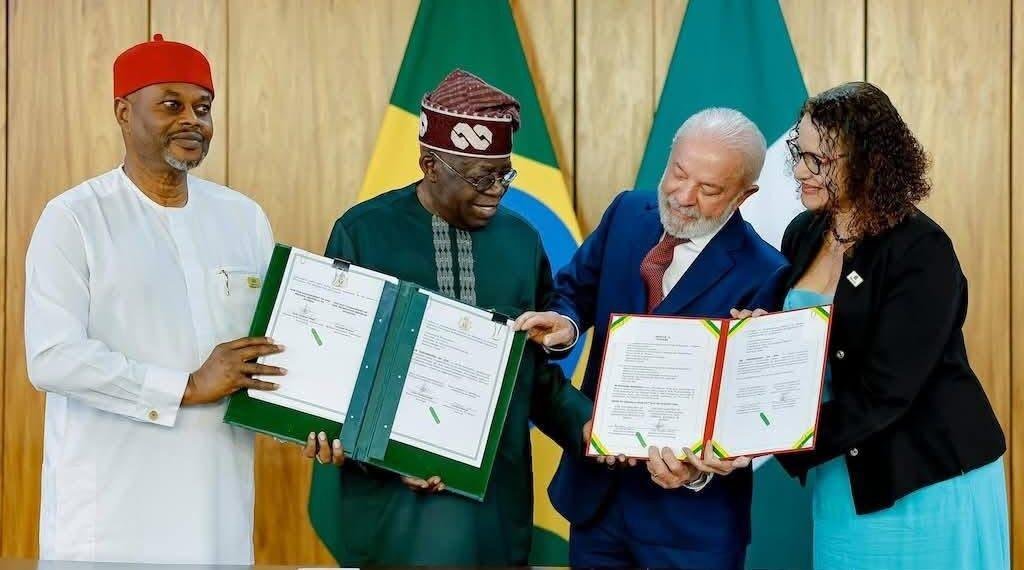Nigeria and Brazil are set to strengthen bilateral health cooperation with the development of a Five-Year Joint Action Plan following the Memorandum of Understanding (MoU) signed in July 2025 between the Federal Ministry of Health and Social Welfare of Nigeria and Brazil’s Ministry of Health.
The Honourable Minister of State for Health and Social Welfare, Dr. Salako Iziaq, disclosed this after high-level engagements between Nigerian officials and their Brazilian counterparts. He explained that the Joint Action Plan will focus on operationalizing the MoU, creating a strategic framework for collaboration in key areas of healthcare delivery.
Part of the agreement includes the establishment of a government-to-government procurement system for both countries’ health sectors. According to the Ministry, this framework will enhance transparency, reduce costs, and strengthen local supply chains, ensuring that medicines and medical equipment are made more affordable and accessible.
Read also:
- Tinubu lands in Brazil, to seal new deals for Nigeria-Brazil partnership
- Nigeria, Brazil to review BASA to initiate direct flights
- Nigeria, Brazil launch agricultural initiative to boost food production
Dr. Salako emphasized that Nigeria’s partnership with Brazil reflects the country’s reform-driven agenda in the health sector. “Nigeria is committed to building strong, reform-driven partnerships that directly improve the lives of our citizens. This proposed Joint Action Plan and procurement framework with Brazil will help us expand access to affordable medicines, strengthen our health workforce, and deliver better services across the country,” he said.
The Ministry stressed that this renewed cooperation highlights innovation, affordability, and sustainability as central to Nigeria’s healthcare reforms. It signals a determination to ensure that international partnerships produce tangible results, improved healthcare delivery, stronger systems, and wider access to essential medicines for Nigerians.
With the proposed plan, Nigeria and Brazil are expected to align efforts in advancing universal health coverage, driving cost-effective solutions, and building a resilient health sector that meets the needs of citizens in both nations.






